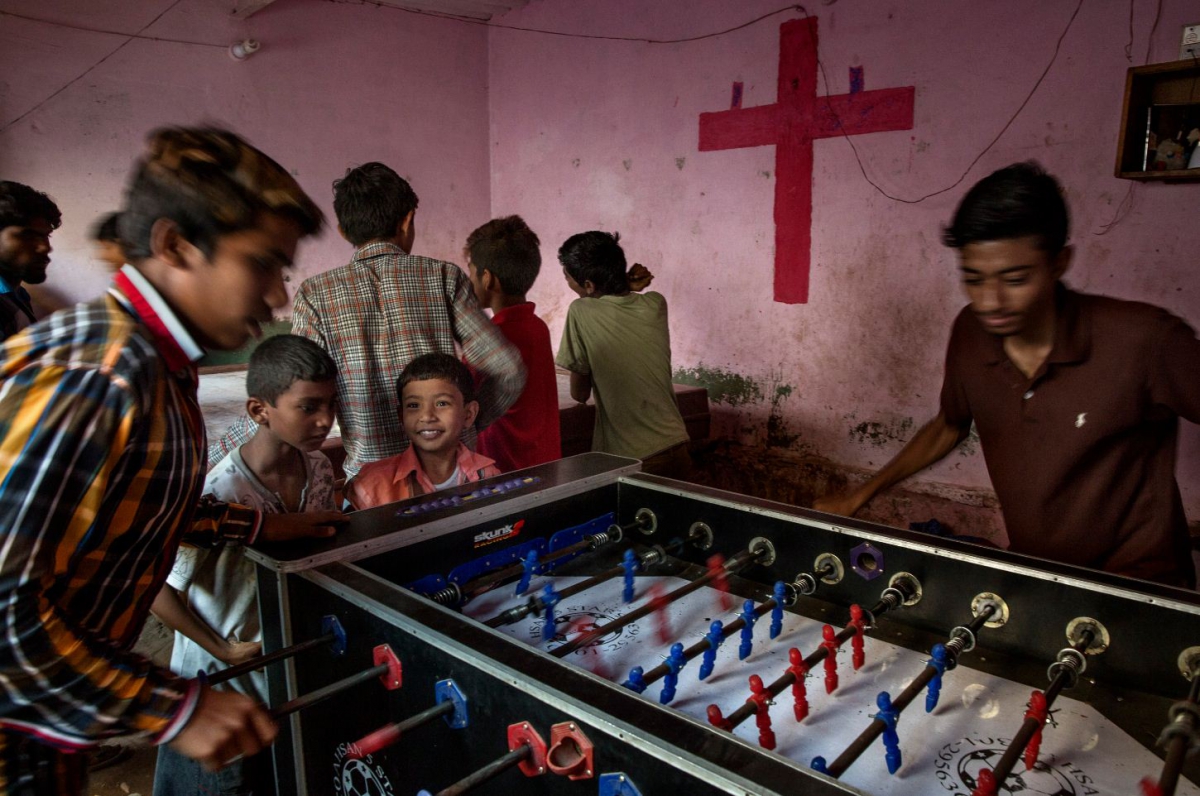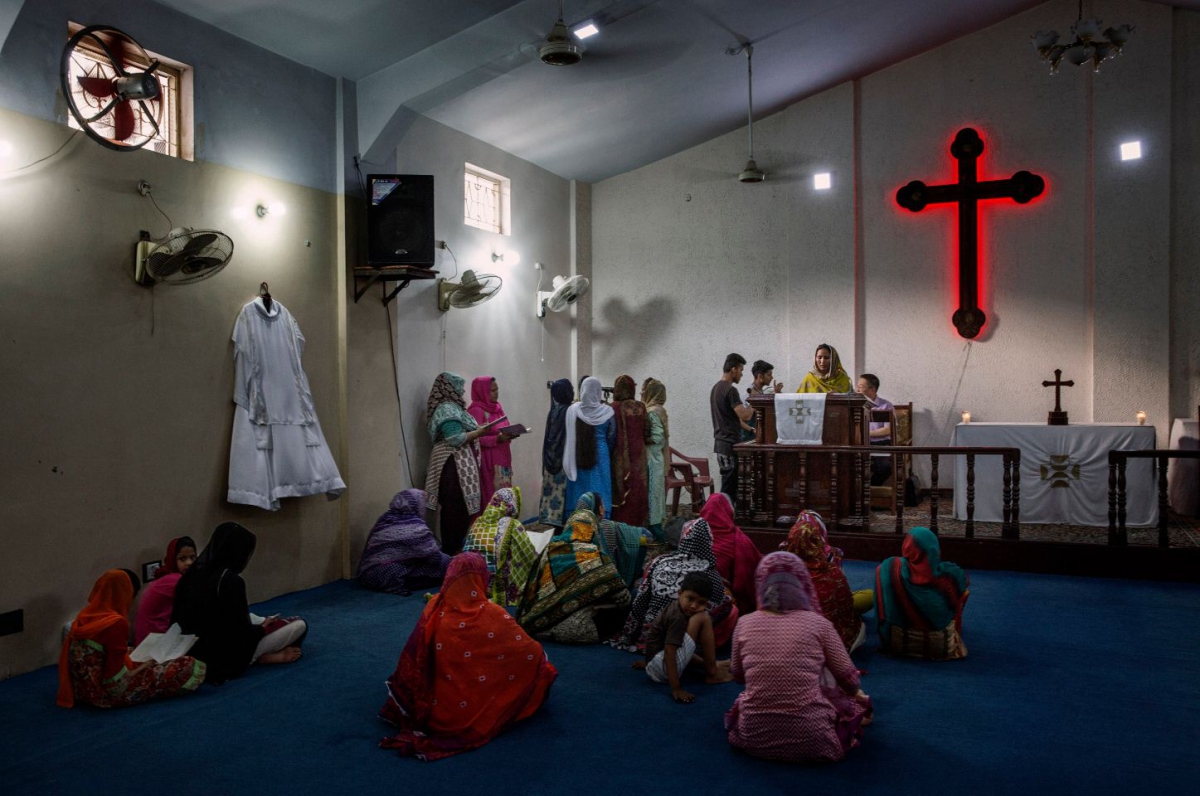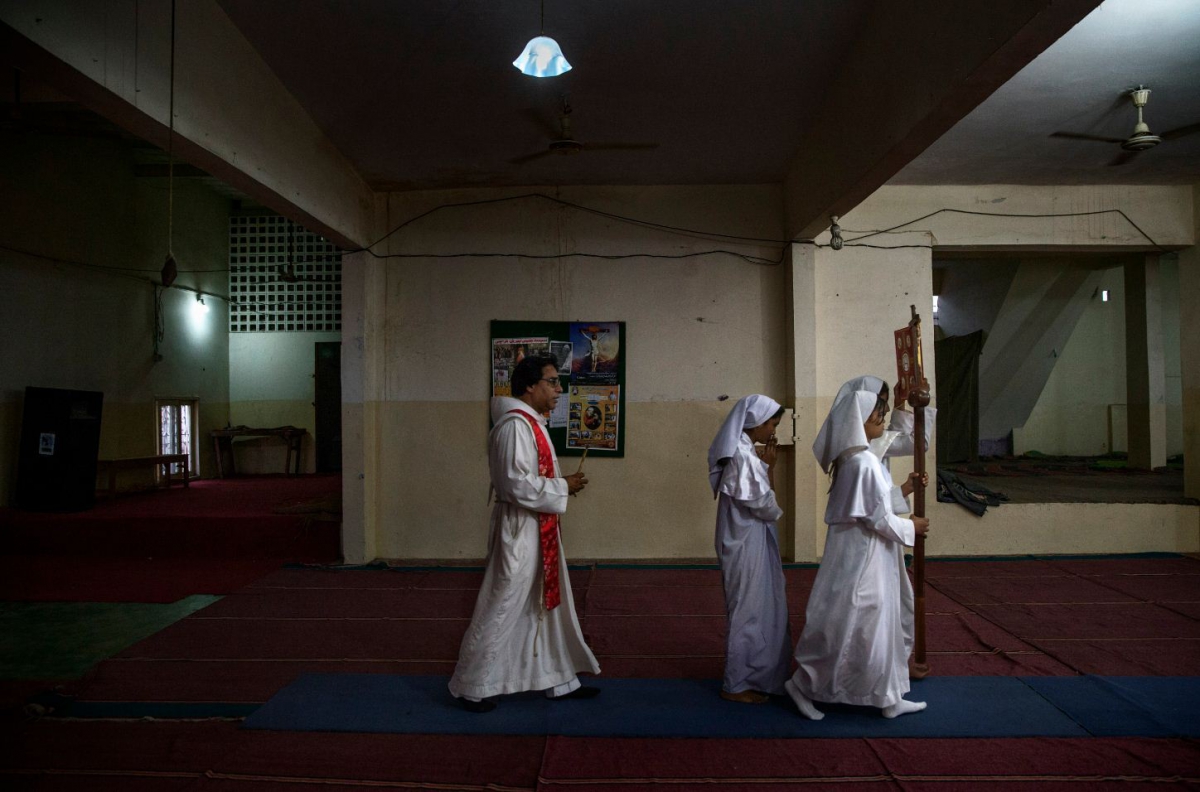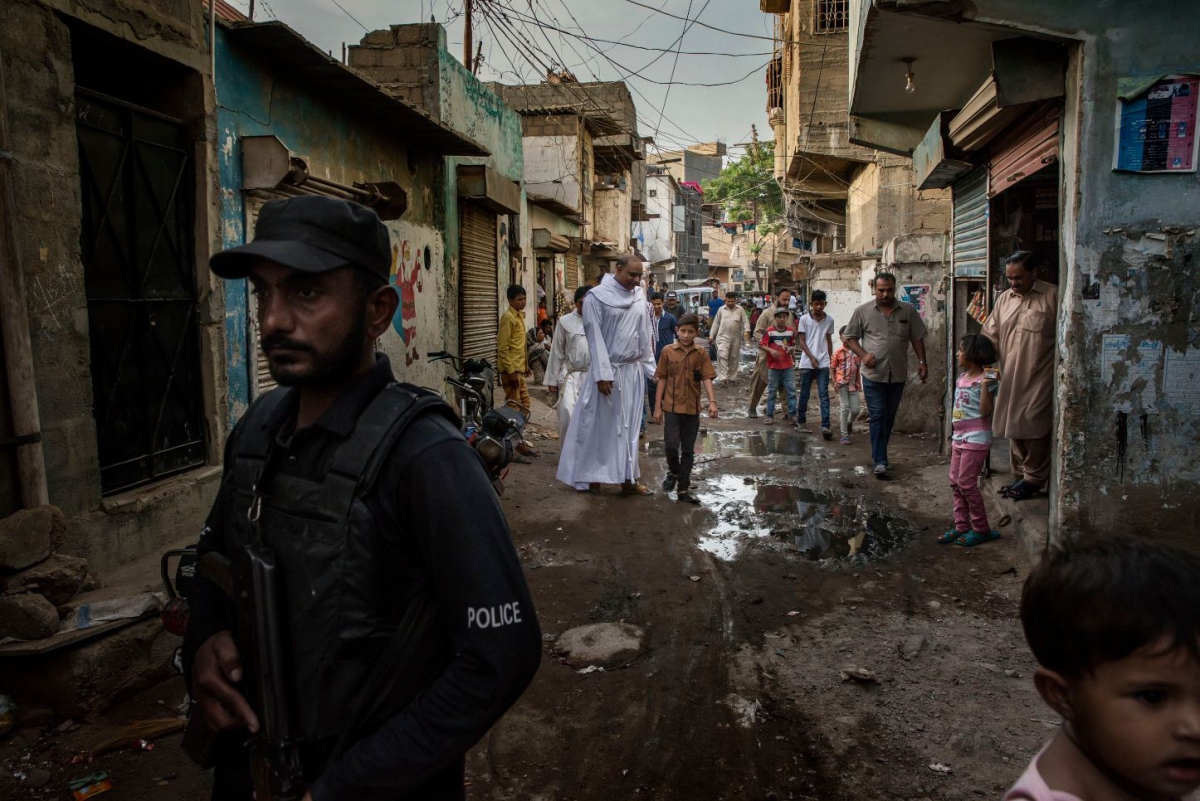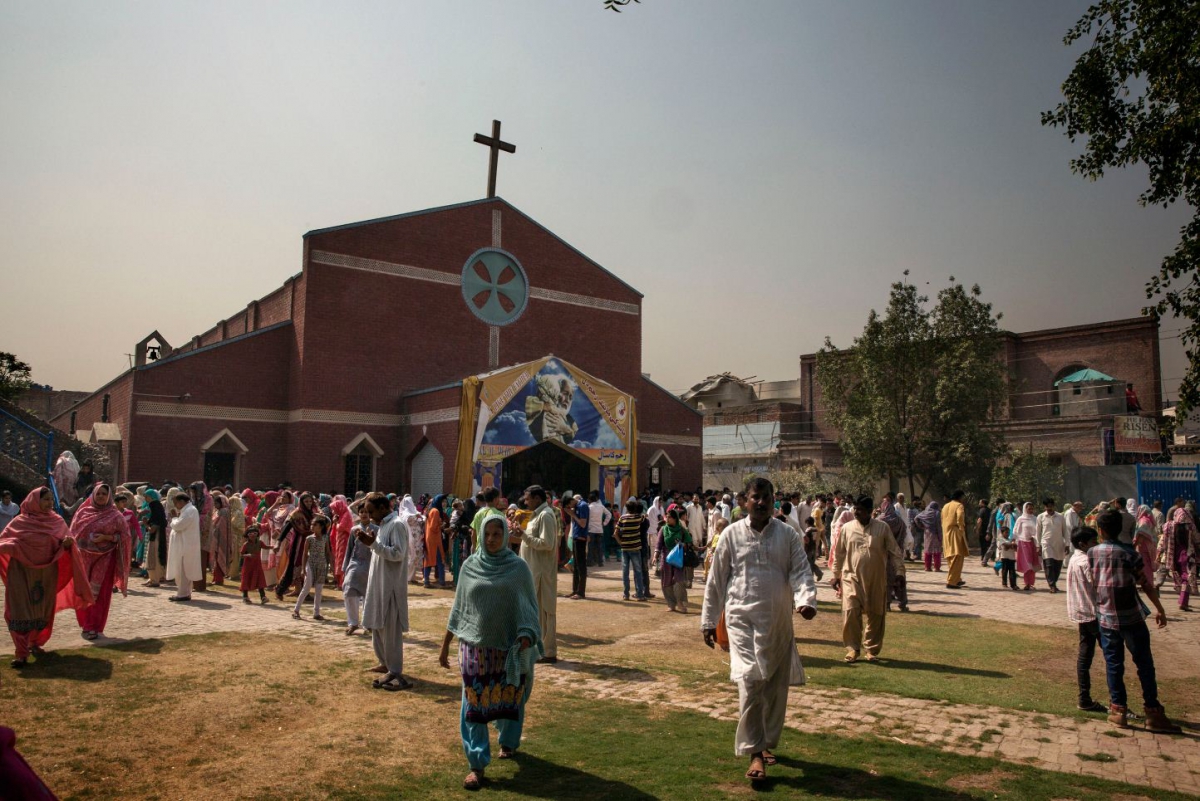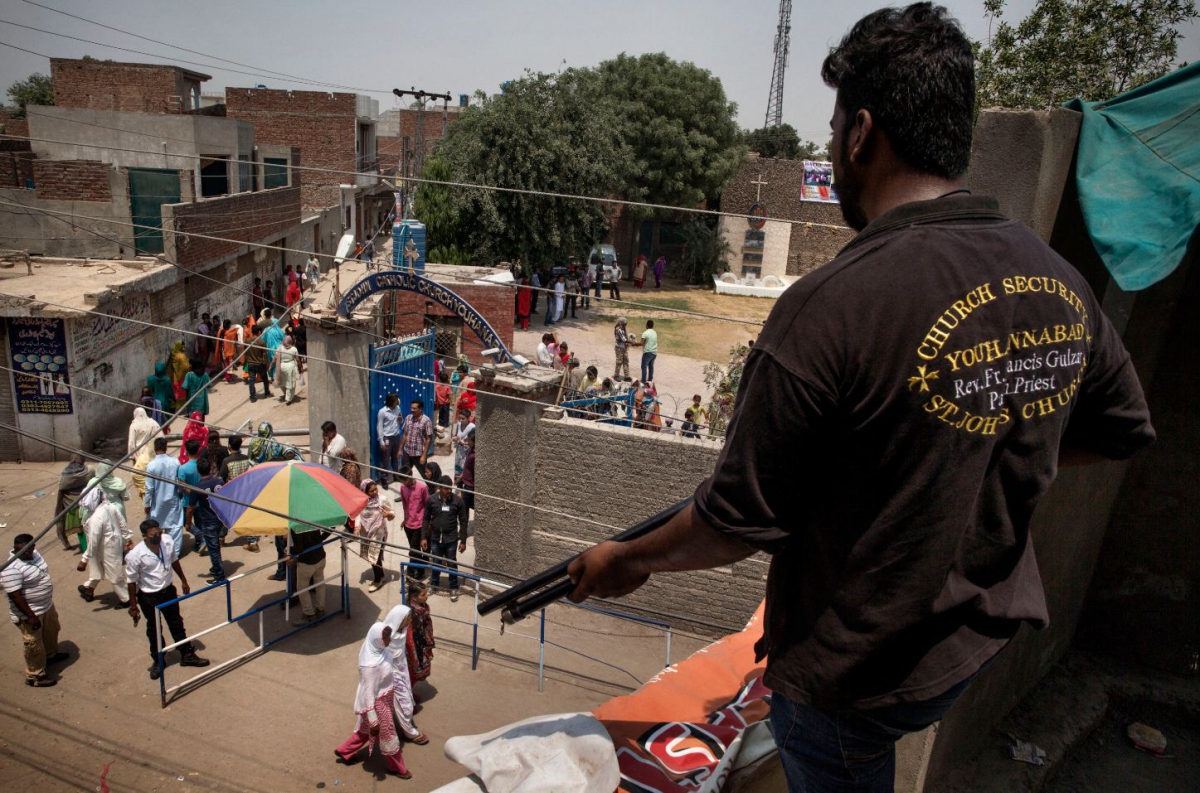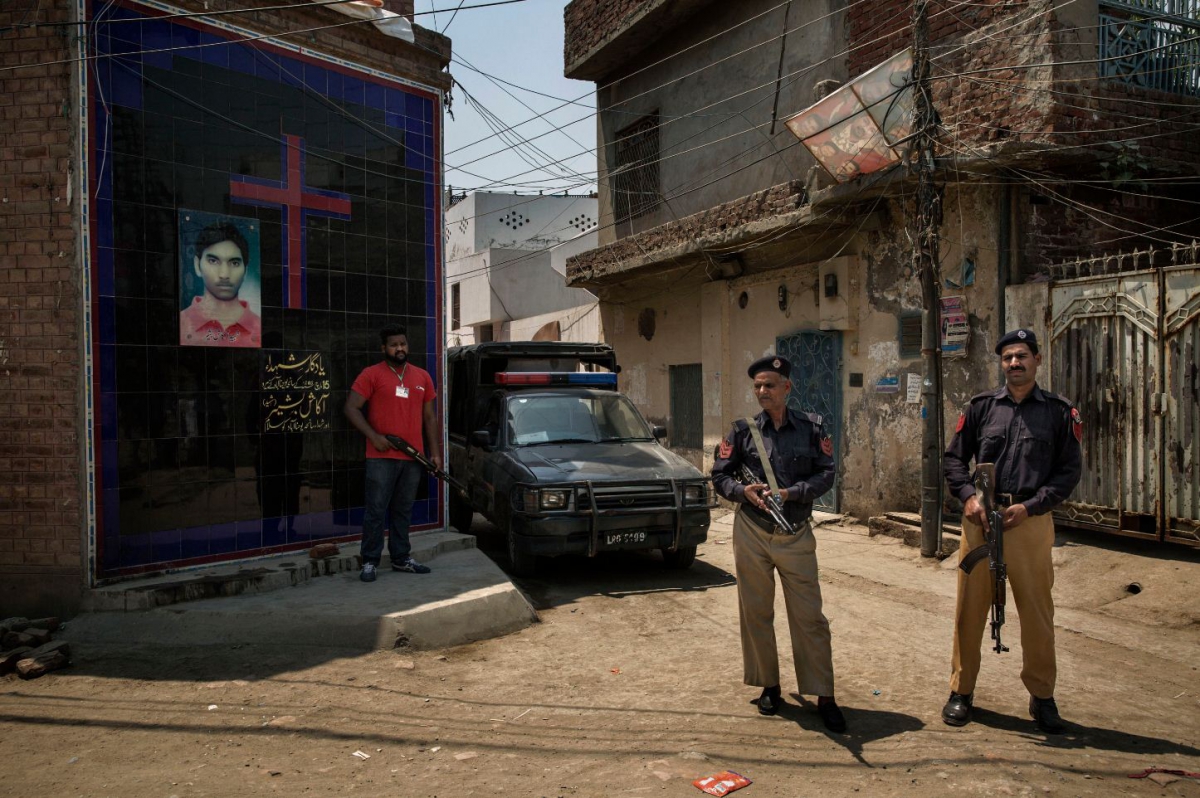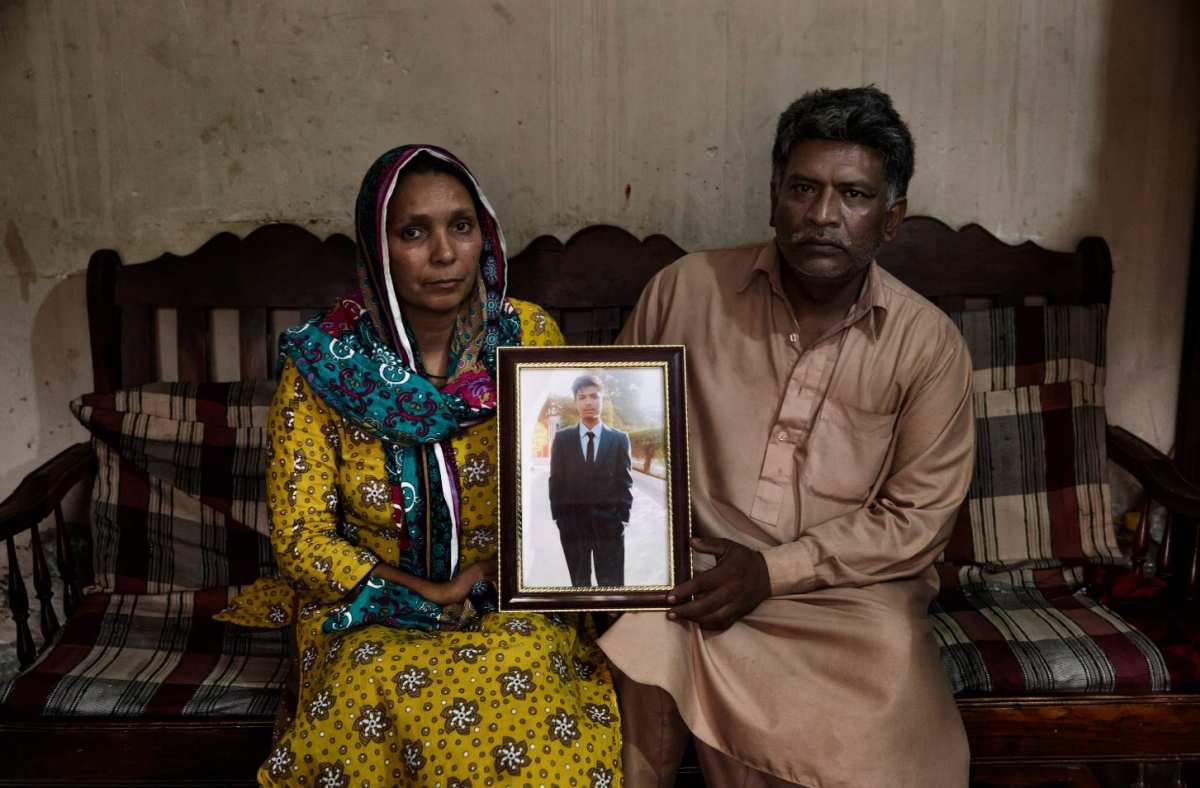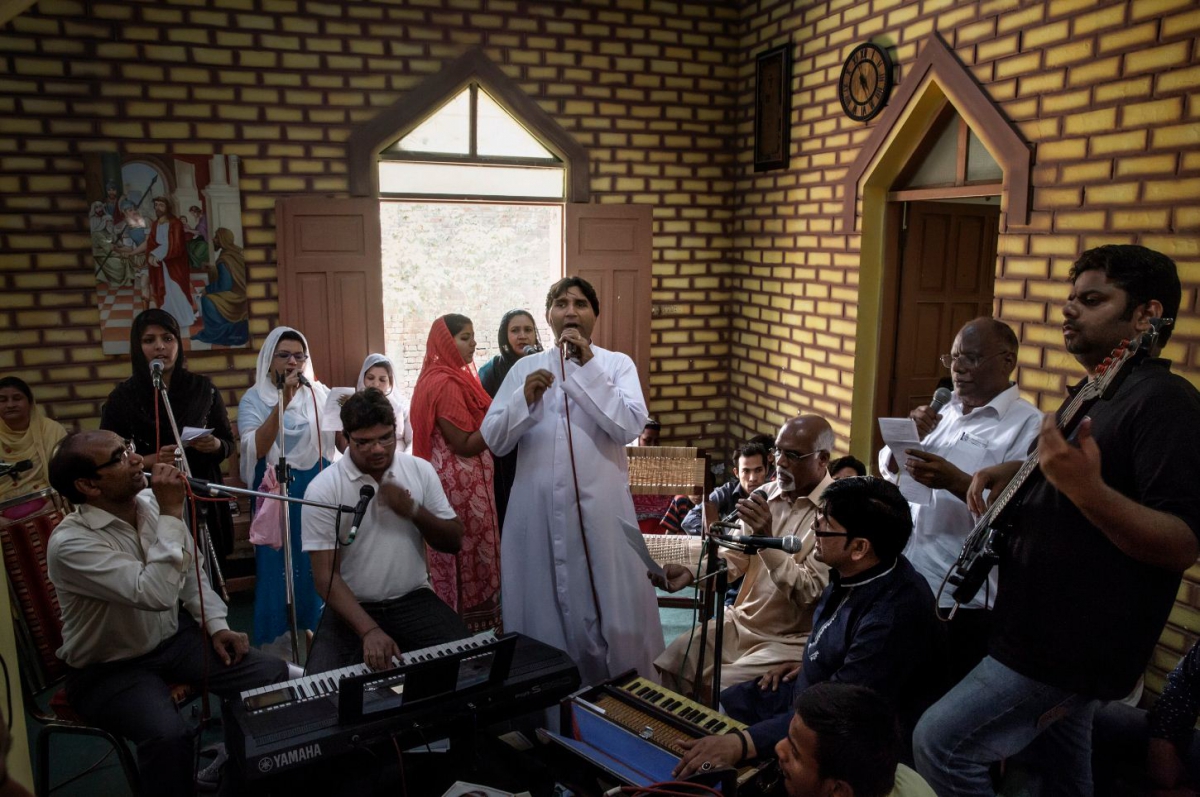It’s a mixed crowd that Sunday morning crosses the Youhanabad district, Lahore, to go to Mass. The churchyard is full of people and one by one the believers enter the temple. There are many Catholics in Lahore; in the only Youhanabad district they are more than 40 thousand and are the representation of a pride raised to a conduct of life without compromise. The church, in fact, in the March 2015 was the target of a Taliban suicide attack and every Sunday, even today, praying a discriminated God means exposing to a perpetual threat and to a possible attack by an invisible army, forged by hatred and with absence of any human remorse.
Arrive by walking and by rickshaws the believers, they are subjected to security checks and then enter the courtyard of the parish. It is not an act of courage end in itself, an abandonment without condition at the face of fear. The Cathedral of Saint John, with still the explosion symbols etched on the walls, with the wounds in the skin of who that Sunday in March was present, is the proof of the raped soul of an entire community. So here there are fathers holding hands to children, women with colored veils praying the Virgin statue, here they cross the Church with the imperative to be present, not to accept a violence aimed at the remission of their identity and the imprisonment of a life subdued to the negation of themselves.
Outside the church and over the surrounding rooftops, volunteers armed with shotguns, AK-47 and automatic pistols, patrol every street and every movement. In Pakistan there is no war and at the same time it is always present: it is a matter of perspective. Views that depend on the causality of being born in the womb of a mother who prayed a God not accepted or another who chanted the help of a Supreme Being who, today, by some religions, is called to welcome a new life, but also to bless the death of others.
You would risk your life for your faith?
It is the same Pakistan, the son of the British partition of India in 1947, to be born in the midst of a religious rift. The history of the country is troubled, made by tough ethnic balance, international geopolitical interests, coups that follow one another and an increasingly pressing border conflict: both on the Indian front and on the Afghan side. It is in the 70s, in the logic of the Cold War, that the Islamist involution occurs which drag the “land of the pure” to be the incubator of the present form of terrorism and the birthplace of the Taliban fanaticism.
The Bhutto government is knocked down by the coup of Mohammed Zia that begins to Islamize the society, also introducing life imprisonment for those who have a disrespectful attitude towards the Prophet and the Koran. The ’86 penalty is replaced with death execution. Pakistan is moving ever closer to extremist positions and in the middle of the Cold War logics the country is “selected” to host and prepare the Afghan mujahideen. Americans finance the jihadis in a anti-Soviet point of view, the Saudis are investing capital and open madrassas everywhere to spread the wahabi belief and the presence of the two components results in the emergence of the Taliban which in the Pakistani territory find fertile ground.
Islamic radicalization, over the years, becomes increasingly pressing and manifested, especially after the 11 September. The Prime Minister Benazir Bhutto is murdered for her positions against the Taliban, Shabhaz Bhatti, Minister for Minorities and only Catholic in the government of President Zardari, is killed too and the same fate comes to Salmaan Taseer, Governor of Punjab, who had opposed the “blasphemy law”.
And the “Blasphemy Law” is the main instrument through which discrimination occurs against religious minorities. In the last 25 years more than 1,000 people ended up on trial. The best known case is that of Asia Bibi, a Christian woman who worked in the fields of Lahore and has been charged by a group of Muslim farmers, who have accused her of insulting Muhammad. Since 7 years she is in prison awaiting the death sentence.
Pakistan is also the country of terrorism, besides discrimination, and from 2001 to 2014 it was the third most affected country in the world by terrorist actions, which have caused 18 thousand deaths so far. The Taliban groups are acting; but now, in the Waziristan region, the ISIS said it has opened training centers and “Tehrik-e-Taliban Pakistan” has decided to approach the DAESH. To date the actions and attacks, however, are all made by the “students”, just like the attack on the Church of Lahore in Youhanabad last Sunday 15 March 2015 when more than 15 people were killed and more than 70 wounded.
Youssef Rahmad and Qaiser Pervaiz were two of the guards who were involved in the attack that day. They participate today at the function of Saint John church along with the hundreds of Christians present, they listen the words of Father Francis Gulzar, saying from the altar to the faithful “St. Thomas came hither, in Pakistan, and we are his children. We must never be afraid, because our faith is stronger than any terrorism.”
Then, after the Mass, in front of a cup of “chai”, they recall what happened that bloody Sunday, a year earlier. Youssef was one of the guards who watched the entrance of the temple. He was the first to be hurt by the bullets of the suicide bombers of the Jamaat-ul Ahrara group and still shows the scars on the body. “He shot, I returned fire and managed to hit him, but I took him to smear and so the bomber reached the gate, where he blew himself up.”
At the time of the explosion the blast has also affected a high voltage transformer, the hot liquid splashed everywhere overwhelming Qaiser, who shows the signs of burns, shrapnels and of the sustained operations, and indicates quietly, pausing solemnly on each scarring, that his body became a book on which was written an indelible chapter of a uncompromising religious hatred. They tell of the moments of fear, of the lifeless bodies and then evoke the name of Akash Bashir. They thank him and pray to him and say that if today their children, relatives and friends are alive, it is thanks to him.
The face of Akash, a Christian 19 year old boy, is in the homes of the faithful, at the entrance of the church, it is found everywhere in Youhanabad and a giant poster shows him exactly where he was killed. Parents call him “Hero” and say he was a model son; the whole community thanks him and begs him as a Saint. Akash is the guy who on 15 March was close to one of the terrorist clinging to him to prevent him from entering the church and causing a massacre, and always remained clinging to the attacker, even when he activated the explosive belt.
It is a tale that causes commotion, one life donated for that of the others, as Christ did, is the face of his mother that teaches forgiveness and invites inclemency against the resentment, primordial purity of faith in the heart of Pakistan; is the name of a Christian boy who, to save the brothers, died slapping hatred, with an extreme act of mercy, sacrificing his own life, in a tight endless embrace with their murderer.
Thanks to Gli occhi della Guerra for the moving article.
